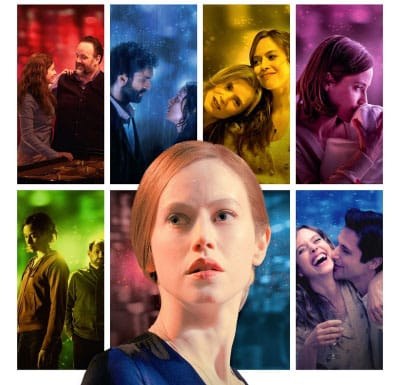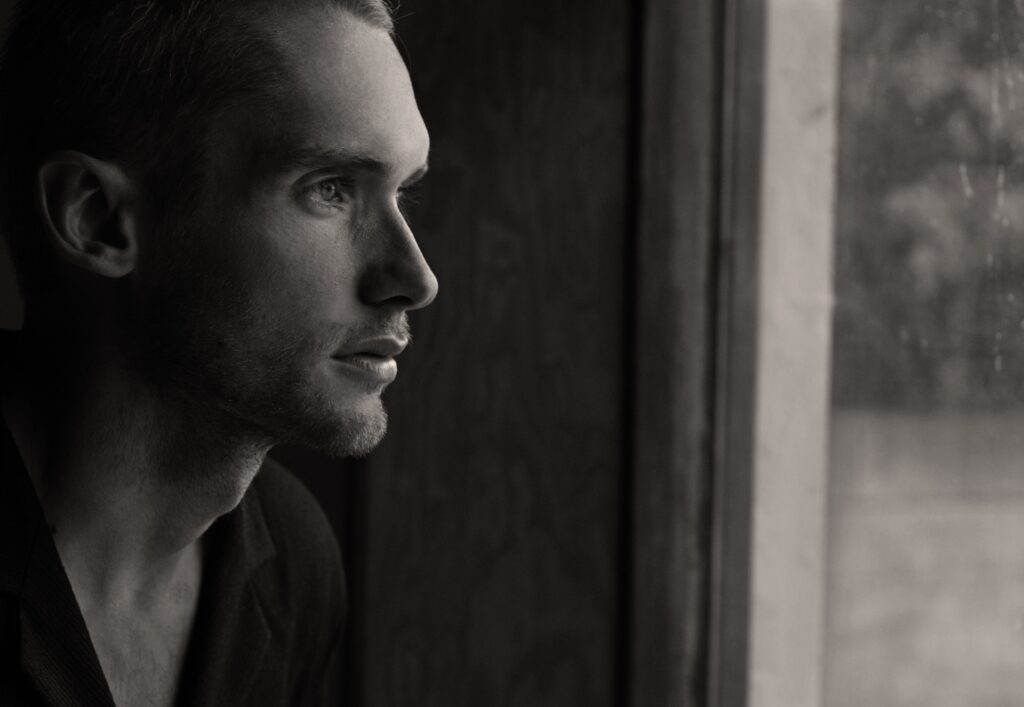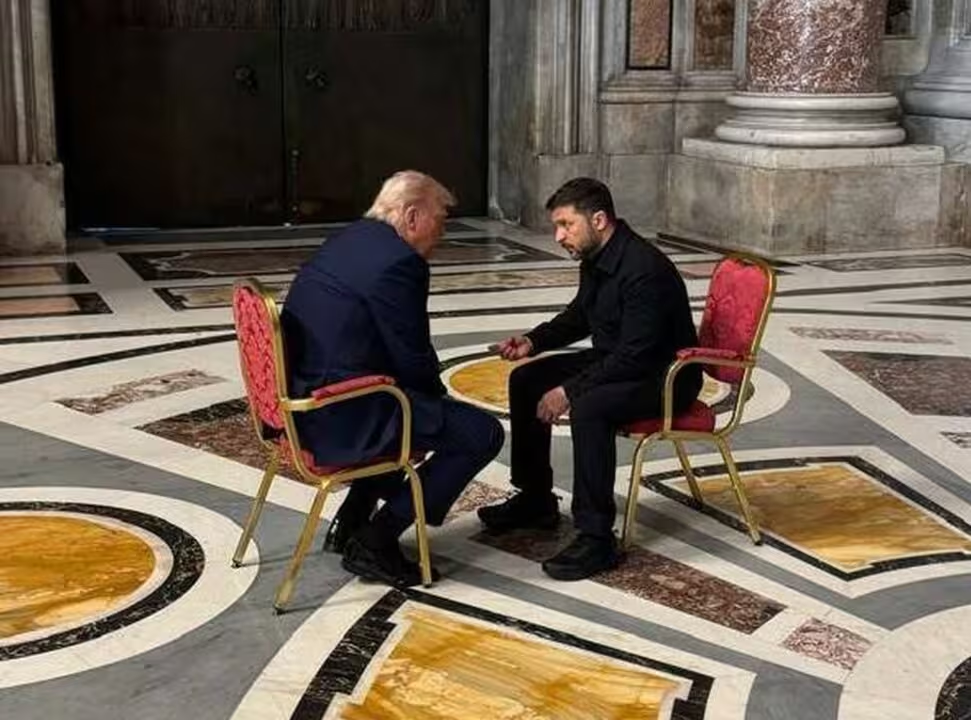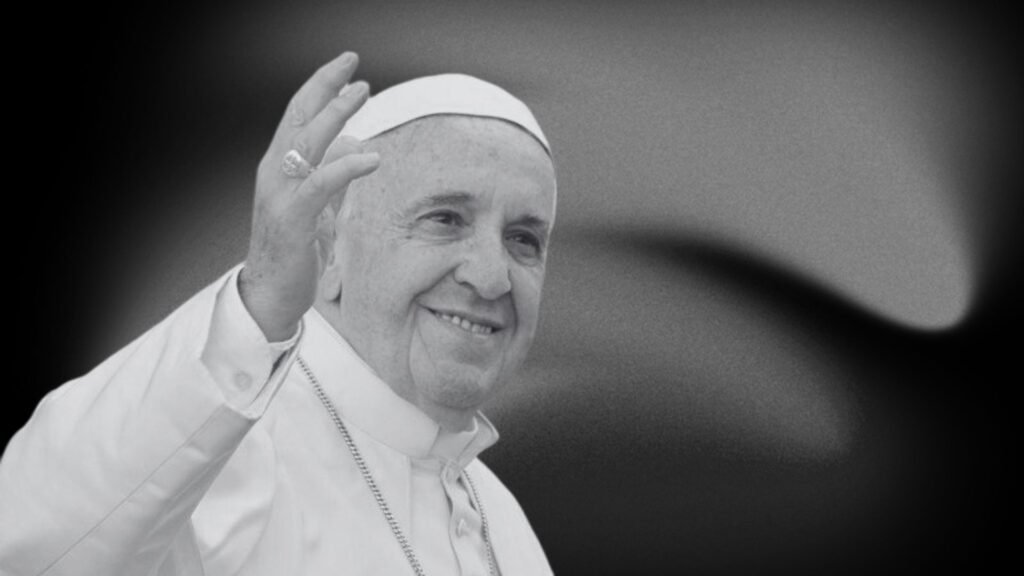Small coincidences
A film against hopelessness and death as an escape

In Western democracies, the option of death is gaining ground as a plausible way out in the face of adversity, either to escape illness, suffering, the frustration of life plans, or the fear of becoming a burden to others. In addition to laws such as Euthanasia, which legitimises the suppression of life as the ultimate expression of freedom and personal autonomy, there is the reality of suicide and unfinished attempts, a personal and social drama that is affecting more and more young people. The French film Small Chances combats hopelessness and the increasingly widespread idea of death as an escape. Olivier Treiner’s film is an ode to life, with its ups and downs and setbacks, a reflection on the search for happiness, the meaning of suffering and responsible freedom for oneself and others.
Who hasn’t ever wondered whether our life is the consequence of a responsible and conscious exercise of free will, or whether it is not the result of an accumulation of random coincidences and fortuitous accidents, of a long-suffering destiny that turns us into mere interpreters of a script already written and, in the end, turns out to be an extraordinary defence mechanism to avoid the examination of some ill-advised decisions. Or, as a third option, if it is not our relationships with others that influence us to lead us in one direction or another. And who has not been carried away, on more than one occasion, by an intrinsically human trait, our capacity to imagine, which makes it possible to put the present in parentheses and project ourselves into past or future times, what our life would have been like if … we had done this, that or the other thing. A nostalgic exercise that often contributes to embittering our existence and undermines the possibilities of real happiness when it is not aimed at a genuine examination of conscience.
Julia, the protagonist of French filmmaker Olivier Treiner’s debut feature Le Tourbillon de la Vie (2022) – released in Spain as Petits Casualités (2023) – reflects on her 80th birthday, in Paris in 2052, on the intention and meaning of her own life. The character, played by the actress Lou de Laâge, reviews in the last stage of her life a series of decisions and accidents that, since the age of 17, coinciding with the symbolic fall of the Berlin Wall (1989), could have led this brilliant piano student, along different paths, to other possible lives. The director skilfully deploys different cinematographic resources aimed at ensuring that the spectator does not get lost in the projection of Julia’s four possible alternative existences, with different degrees of happiness and suffering, in which the protagonist faces a melting pot of dilemmas, some with dramatic consequences.
The strategy of telling a story from different perspectives is reminiscent of films such as Peter Howitt’s Two Lives in a Flash (1998), Jaco van Dormael’s Mr. Nobody (2009) and Ridley Scott’s The Last Duel (2021). However, the proposal of the director of Small Chances favours a deeper philosophical and bioethical reflection on three key themes related to the meaning of existence. The French filmmaker does not limit himself to a reflection on chance/chance – action or destiny – or on the natural ups and downs of living. These are collateral themes which, in a twist of script, serve as an excuse for Treiner to formulate his authentic filmic proposal; an ode to life in the face of despair when plans go awry and a radical critique of the idea of death as an escape from suffering and vital frustration, increasingly rooted and naturalised in today’s societies.
The different plots of the film lead us to a metaphysical reflection: our life is a warp of experiences, both lived and unlived, to the extent that what we have not experienced – by accident or by our own decision – also ends up shaping us internally. And, in this sense, the director actively combats, through the fiction of Julia’s possible lives, the irrational belief that achieving what we dream of is always and in all cases an absolute guarantee of happiness. In this context, she formulates an acid criticism of the ideal of romantic love that refers to children’s stories and promotes expectations of the other that are hardly feasible.
In all of Julia’s lives, even in the happiest projections, pain and glory coexist. And in none of the most painful moments does the filmmaker promote voluntary death as an option to avoid suffering, quite the contrary. Treiner presents the ups and downs as an opportunity to display hitherto unknown skills and gifts. This is done in different scenes, such as the serious illness of Julia’s mother, or in the failed suicide attempt of the protagonist herself in one of the lives that was promised to be more perfect and that ends up being twisted by a motorbike accident that takes her away from her promising career as a pianist. The supposedly perfect couple turns into a loveless, uncaring relationship. Julia’s suicide attempt as a way out of the disappointment and pain of not being able to fulfil the plans encouraged since she was a child by her own family not only hurts her, but also severely damages her relationship with her two children.
On the other hand, the director strives to combat superficiality and comfort based on the accumulation of material goods, or addiction to work as the only means of personal recognition that neglects attention to those closest to us, as symbols of fulfilling lives. The French filmmaker – co-author of the screenplay written with his wife – invites the viewer to face frustration and existential setbacks with hope, unfolding, despite the obstacles along the way, a life that is authentic, coherent and responsible with the decisions we make or the accidents that change our plans. Hopeful existence, despite adversity or misfortune, has nothing to do with an exercise in simplistic sentimentality on the part of the filmmaker, but with the need to admit the impossibility of controlling absolutely all the extremes of our lives, which are inexorably subject to episodes of uncertainty and accidents.
Personal transcendence has a mystical side that is not exhausted either in the person himself, or in the other, or in the community. The search for a transcendent reality, in this sense, takes place in the depths of a person’s existence, bursting forth with such impetus that, first, it overflows and, immediately afterwards, it sponges up and illuminates the Self. Olivier Treiner presents the family as a loving space, though not without conflict, which promotes personal identity, transcendence and prepares us for relationships with others.
Before the bioethical assessment, it is no trivial matter that the French filmmaker gives Giuseppe Verdi’s opera Nabucco, and specifically, the chorus popularly known as Va pensiero, which evokes the Old Testament passage of the enslavement of the Jews in Babylon, a role that is enigmatic until the symbolic, liberating and redemptive ending of the film. Verdi wrote this opera, which premiered in 1842 at l’ Scala in Milan, at an extraordinarily painful time, after the death of his wife and two sons. It is not the purpose of this film reading to go into the political symbolism of this part of the opera, but a phrase repeated by the chorus is revealing and sums up perfectly the thesis of the film’s director: May suffering instil virtue!
Bioethical Assessment
The film proposal of the director of Small Chances is compatible with the personalist bioethics that considers life as a fundamental value of the person, as a corporeal being and, at the same time, a spiritual being. We can only unfold our life from a body. That is to say, without physical life it is impossible to exercise the freedom that is cancelled by the choice of death. Moreover, the Principle of Freedom and Responsibility implies that the person is free to achieve the good of oneself and of others, so that there can be no authentic freedom if it is not accompanied by responsibility towards oneself, towards one’s own life, and towards others. From the point of view of bioethical personalism, the person is the centre of society and this implies a two-way enrichment and a direct responsibility towards others that is impossible when a “culture of death” is promoted:
On the other hand, the plot of Small Chances evokes key reflections such as that of the philosopher Julián Marías on the search for happiness, to which he refers by means of a paradoxical expression: “the necessary impossible”. Marías thus alludes to the human drama of the innate yearning to be happy and, at the same time, the stubborn reality of never being able to be fully or continuously happy, beyond what he himself calls “islands of happiness”, ephemeral moments to be enjoyed. As C.S. Lewis recalls in his play A Grief Observed, made into a film called Shadowlands, their happiness of them is part of the pain of today, “that’s the deal“.
The personalist philosopher Gabriel Marcel, in his work Homo Viator, also deploys a metaphysics of hope in accordance with the central thesis of the film, which is the subject of commentary. Where hope fails, “the soul dries up”, Marcel warns us. And he provides us with an essential clue that there is no hope except “at the level of we, of agape, not at the level of a solitary self that would be obscured by its individual ends”. Hope and ambition or desires do not belong to the same spiritual dimension. The “I hope” is oriented towards salvation, while the “I desire” is oriented towards an obsessive and dehumanised having.
To conclude, this film critiques some lucid words of Dostoevsky, alluded to by Victor Frankl in his work Man’s Search for Meaning. “I fear only one thing, that I am not worthy of my suffering”, which alludes to the central plot of the film. Giving life intention and meaning prepares us to rise above adversity.
Amparo Aygües. Former student of the Master’s Degree in Bioethics. Collaborator of the Bioethics Observatory
Related

Divine Mercy, the Small and the Great
José María Montiu de Nuix
27 April, 2025
5 min

A Meeting of Hope in St. Peter’s Basilica: Trump and Zelensky
Exaudi Staff
27 April, 2025
2 min

Saying Goodbye to Francis
Exaudi Staff
26 April, 2025
2 min

The Family: A School of Love, Forgiveness, and Hope
Laetare
25 April, 2025
3 min
 (EN)
(EN)
 (ES)
(ES)
 (IT)
(IT)

